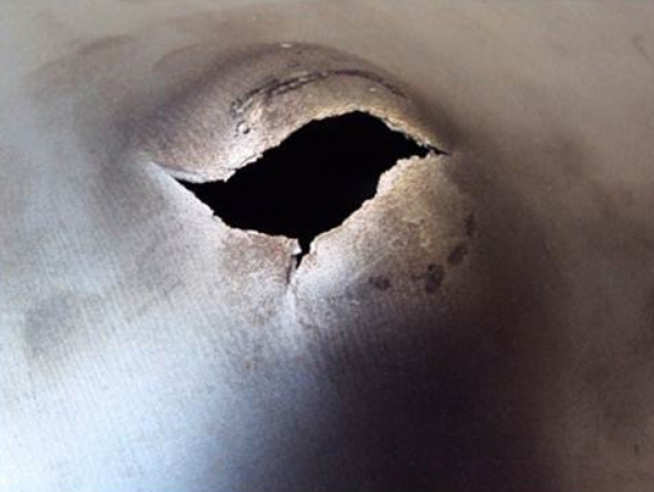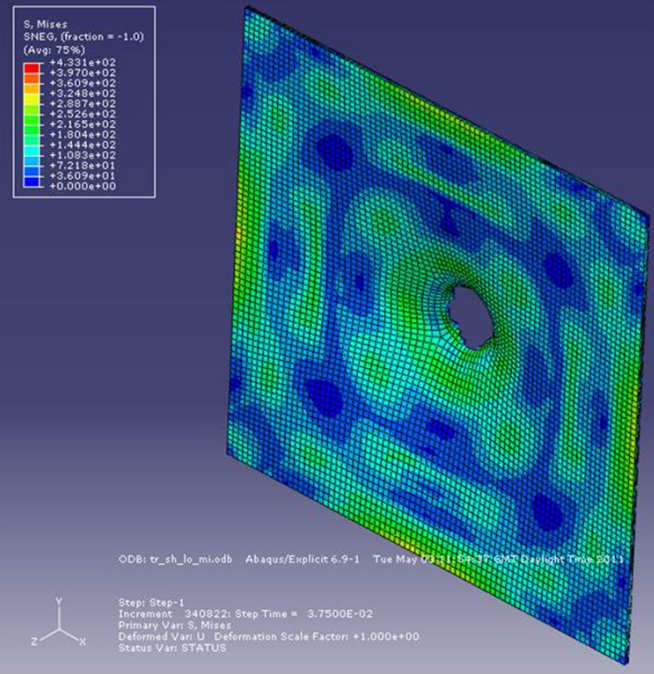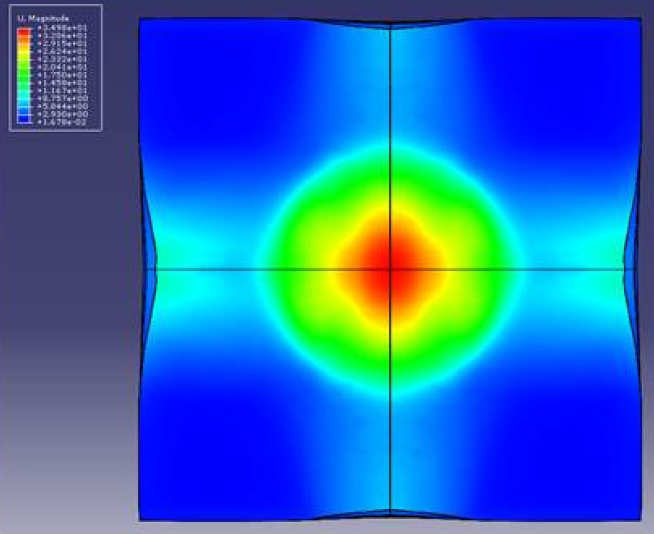Improving survivability of structures to impact and blast loading
Research Team: Dr Luke A Louca, Dr Arash Soleiman Fallah, Dr Karl Micallef
Sponsors: EPSRC/Dstl (MoD)

Mitigating the effects of explosions and impacts is one of the most important aspects of military technology. This is also becoming a significant design issue in civilian applications due to the increased threat of terrorist activity which has highlighted the vulnerability of vital infrastructure.
Ongoing research into improvements of blast and ballistic resistant structures at Imperial College in conjunction with DSTL/MoD for air, land and marine applications has shown the potential benefits of introducing novel materials in military platforms.
Recent DSTL reports have highlighted potential weight savings and improved performance against weapons effects by incorporating high performance fibres into hybrid composite systems.
Hybrid systems are not unusual in nature for improving performance under various dynamic load conditions; the spider’s web is probably one of the best examples where up to seven different silks with varying properties are used to optimise the performance of the web20. Hybrids can take on different forms from different fibres manmade or natural and metal to polymeric fibre combinations.

The project has focussed on investigating novel advanced polymeric composite systems and their performance under blast loading.
This has been achieved by material characterisation (experimental), development of visco-elastic and visco-plastic constitutive models for composite materials (numerical) taking into account different modes of failure for uni-directional (UD) and woven (WR) Fibre-reinforced plastic composites (FRPs), verifying these models at specimen level by literature and at structural level through blast load experiments in collaboration with University of Cape Town (South Africa) and optimisation of various composite architectures to enhance resistance by means of virtual modelling.
Detailed investigation into the failure modes encountered in experiments has enabled enhancing the simulation capabilities to capture all failure modes efficiently and accurately using ABAQUS finite element software.
This has involved writing user subroutines to improve the constitutive models and the failure predictions. Comparison of blast resistant performance with plates made of mild and armour steels of equal areal density to the polymer panels studied was initially carried out.
Development of analytical and simplified discrete-parameter models to quickly assess the performance of the proposed optimised systems subjected both local and global blast scenarios has also been studied. Development of design envelopes along with response spectra to allow for the performance-based design in the space of alternatives encompassing the studied architecture is also under development.
Output
PhD thesis

The dynamic response of blast-loaded monolithic and composite plated structures, Karl Micallef, Imperial College London, 2013.
Journal papers
A study of early-time response in dynamically loaded visco-elastic composites
Composite Structures, Volume 94, Issue 4, March 2012, Pages 1366–1378
K. Micallef, A. S. Fallah, P. T. Curtis and L. A. Louca
The dynamic performance of simply-supported rigid-plastic circular steel plates subjected to localised blast loading
International Journal of Mechanical Sciences, Volume 65, Issue 1, December 2012, Pages 177-191
K. Micallef, A.S. Fallah, D.J. Pope, L.A. Louca
A homogenised continuum constitutive model for visco-plastic deformation of uni-directional composites
Composite Structures, Volume 99, May 2013, Pages 404-418
K. Micallef, A.S. Fallah, P.T. Curtis, L.A. Louca
The dynamic performance of simply-supported rigid-plastic circular thick steel plates subjected to localised blast loading
Accepted for press in ASCE Journal of Engineering Mechanics, 2013
K. Micallef, A.S. Fallah, D.J. Pope, L.A. Louca


